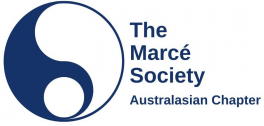Challenges in adolescent parenthood
ADOLESCENTS' IDEALISATION OF PREGNANCY AND PARENTHOOD: AN INTERVENTION STUDY
John Condon, J Donovan, C Corkindale, Dept of Psychiatry, Repatriation Hospital, SA
Results of our earlier questionnaire survey of 1,500 Australian adolescents' attitudes and beliefs about pregnancy, childbirth and parenthood will be briefly summarised. The findings are consistent with high levels of idealisation in this population. A video portraying interviews with 3 adolescent mothers was produced using transcripts of actual interviews re-enacted by 3 adolescent actors. The interview especially targeted areas found to be idealised in the previous survey. It presented both advantages and disadvantages of parenthood identified by these 3 young women. the study utilised 82 subjects and 110 controls. Subjects were assessed before and after viewing the video. Controls were assessed by questionnaire on 2 separate occasions. Both groups showed highly significant changes in attitudes in the direction of less idealisation. However, there were no differences between the 2 groups. One possible explanation is that the completion of the questionnaire, and the informal discussion provoked by it, may have constituted a significant intervention in its own right.
RISK FACTORS FOR ADOLESCENT PREGNANCY: HOW IMPORTANT IS CHILDHOOD SEXUAL ABUSE?
Sarah Romans, J Martin, E Morris
Dept of Psychological Medicine, Dunedin School of Medicine, New Zealand
An adolescent pregnancy usually is an unfortunate occurrence with three possible outcomes (termination, adoption, adolescent motherhood), all of which have the potential to adversely affect the young woman's future psychosexual and occupational future. New Zealand has a high rate of adolescent pregnancies despite recent increased usage of contraception, particularly condoms. This paper examines risk factors for adolescent pregnancy (under 19 years) in a random sample of adult Dunedin women.
Of the 477 women interviewed, 55 (11.8%) reported that they were pregnant before the age of 19 years. The outcome of these pregnancies included 8 terminations and 2 miscarriages, 10 adoptions, 30 partnered parenthood and 5 single motherhoods. Older women were less likely to have had a pregnancy under 19 years than women under 50 years(p<.008).
Women who reported CSA were more likely to have been pregnant under 19 years in the bivariate analyses, 16.2% cf 6.8% (OR 2.7). There was a clear graduation between the likelihood of an adolescent pregnancy and the severity of the CSA: non-genital CSA 9.6%; genital CSA 18.8%; penetrative genital 31.3%. 14 of the 20 family and psychosocial factors assessed were also associated with later adolescent pregnancy in the bivariate tests. However, logistic regression modelling showed that only 4 of these, not including CSA, has significant adjusted ORs. These were living in non-nuclear family or one in which the parents had frequent rows, being physically punished after the age of 12 years and not having a confidante as a child. Thus, CSA was confounded by these factors. The type of school attended (coeducational or single sex) was unimportant. Material deprivation appeared less important than in overseas reports.
Early pregnancy does not occur randomly but is found in families with pre-existing psychosocial problems. This suggests that preventive strategies aiming to reduce adolescent pregnancy should focus on measures which improve the general function of family units, in addition to providing easily accessible sexual information and contraception to adolescents.
COMBINING CLINICAL & SOCIAL SUPPORTS: RECIPIENTS' VIEWS
Carol Le Brocq, Belinda Marsland, Michelle Turner, Young Parents Program, Brisbane, QLD
Although the evidence for improved maternal and infant outcomes following supportive interventions during pregnancy remains equivocal, those receiving such support have rarely been allowed an opportunity to assert their own views about which benefits are important to them and to their children. Young Parents Program is a community based midwifery and support program which has been operating for approximately 10 years. The midwife and two young women from the program will describe the program and discuss the benefits of ongoing social and emotional support in the lives of high need pregnant and parenting adolescents.





